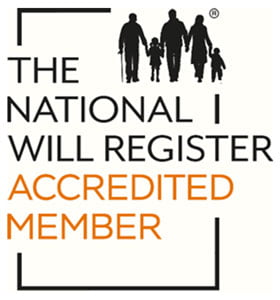Finding the Will
I talk a lot about why it’s important to make a Will. You get to decide who to pass things on to. It makes things easier for those you leave behind. It’s just good preparation; good housekeeping, if you like.
When someone dies without having made a Will, there can be a great deal of uncertainty about what should happen to their assets and liabilities. These things – whether they’re physical property, like a home and possessions, or money tied up in accounts (and debts owed) – have to be dealt with. And where a Will has not been left, the rules of intestacy determine how that should be done and who should inherit. Intestacy is rarely a straightforward process and it can be particularly difficult for family and friends who are coming to terms with their loss.
So, the sensible option is to make a Will. But it’s important once you’ve made your Will to make sure it will be found once you have passed away. This might sound like pretty basic stuff, but you’d be surprised at the number of cases I’ve dealt with over the years where family and friends have been at a loss as to the whereabouts of a loved one’s Will. They tell me, “I’m sure he made a Will”, or “She probably would have”. But that is sometimes about as certain as it gets because they simply don’t know for sure whether a Will exists or where it is. In some situations, family members assume there’s a Will when there isn’t – one was never made, or it has been destroyed.
Tracking down a Will can be simple, or it can be extremely difficult. The ideal scenario is that the deceased had let family members know that they had made a Will and where it was kept. However, in my experience, this is something quite frequently overlooked.
It’s relatively common for a Will to be filed away at the deceased’s home, so it’s always a good idea to check through desk drawers and cabinets. But where that proves fruitless, or where you want to check that the version you have found is the most up-to-date (remember that Wills can, and should, be updated over time), the next port of call will usually be the deceased’s solicitor. Law firms like ours usually store Wills in the strongrooms of our offices. So if you know the name of the deceased’s solicitor or firm, contacting them would be a wise move.
There are other avenues that can be explored if nothing has turned up. These include checking with the deceased’s bank (a safe deposit box, perhaps?) or with their other professional advisors. An appeal for information can be placed in the Law Society Gazette. And there are various organisations whose job it is to search for missing Wills; you could try one of those.
It’s important to exhaust every possible route to laying your hands on the original, signed Will (and not merely a copy). That is the document that will need to be inspected by the Probate Registry before permission – a Grant of Probate – will be given for the deceased’s estate to be distributed. In some cases, a Grant of Probate will be issued even though the original Will has not been provided, although whether a copy will be acceptable will depend on all the circumstances, including who would stand to benefit/lose out if the copy Will were/were not allowed to stand.
That is all best avoided if possible. It’s why when we advise clients on making their Will, we discuss storage options and recommend they keep at least one close family member informed of the details. And if all paperwork – share certificates, insurance documents, deeds, financial documents, for example – are also neatly filed away, that too will make the job of distributing your estate so much easier for those you leave behind.
Need a Will?
For advice about making a Will, or to discuss any aspect of Wills and Probate, contact us 0808 256 2917 or email [email protected].








